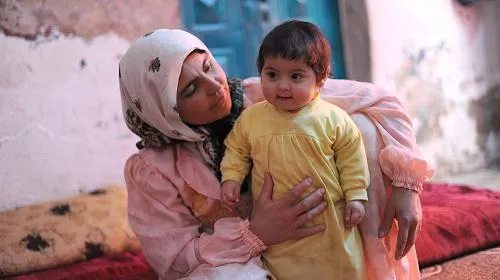Focus on humanitarian aid is needed, along with increased pledges of support and accountability for previous funding commitments
ATLANTA (April 23, 2018) — As donors and governments meet this week at the Brussels II conference, global humanitarian organization CARE joins other aid agencies urging conference attendees to save lives in Syria and throughout the region by fulfilling commitments to protect displaced Syrians and further funding the humanitarian response.
With 2017 considered one of the worst in the seven-year Syria crisis — and 2018 on track to be equally devastating for civilians — international aid organizations, including CARE, warn they will be unable to meet the staggering needs without further commitments from the international community. Joining CARE in that assertion are Christian Aid, International Rescue Committee, Norwegian Refugee Council, Oxfam, Mercy Corps, Humanity and Inclusion and Save the Children
The Syrian response thus far has been just over 20 percent funded, yet, this year alone, nearly 700,000 people have already been internally displaced by violence in the country, with continued attacks on civilians and critical infrastructure like schools and hospitals. More than 7 million Syrians live in communities reporting explosive hazards.
The humanitarian agencies report that access to aid has been systematically compromised and denied by the warring parties inside Syria, deliberately harming civilians and turning humanitarian lifesavers into targets. In 2017, 47 of the 172 UN convoy requests (27 percent) were approved by the government of Syria in full, a drop from 2016, when 117 of 258 requests were approved (45 percent).
Across the region, 2.7 million Syrian children are still out of school. Lack of legal protection for millions of Syrians, inside and outside the country, continues to undermine commitments of humanitarian assistance, education and job creation. At the same time, hundreds of thousands of Syrians risk being forced to return to unsafe, explosive-ridden and devastated neighborhoods without basic services, or to locations consumed by active fighting.
Quotes from leaders representing the eight humanitarian organizations:
Robert Beer, acting Syria director for CARE, said: “Funding the aid response is critical; otherwise even more lives will be put in danger. But funding is only part of the picture — the systematic and deliberate blocking of aid inside Syria must end, and aid workers must be granted unimpeded access to civilians. We are talking about Syrian humanitarians who have been at the forefront of the aid response and should be given special status by all warring parties.”
Tom Krift, Save the Children’s regional director, said: “The latest data shows that despite previous conference pledges to get all refugee children into school, a staggering one in three Syrian children is denied their right to education. Better efforts are required to track policy and funding commitments to ensure they are meaningful and translate into changes for children on the ground.”
Carsten Hansen, regional director of the Norwegian Refugee Council, said: “There is a massive problem across the region of Syrians without legal status or the right documents, who can’t access aid or safety, education or jobs. There has been undeniable progress as a result of previous conferences, but more needs to be done in Brussels. We need action, not just talk.”
Mark Schnellbaecher, regional director Middle East, International Rescue Committee, said: “Active conflict has meant that for every Syrian returning home in the last year, three were newly displaced. Syria is not safe and is unprepared for the return of refugees. The conference must recognize this, commit to refugee rights and support Syria’s neighbors who have done so much already to host 5.6 million people.”
Arnaud Quemin, Mercy Corps country director for Syria, said: “Communities across Syria experience terrifying daily violence. For policy makers to sit in Brussels and say, ‘This is the best we can do’ is shameful. Local relief groups are made up of neighbors helping neighbors, and they save lives on a daily basis. They are the key partners of all international aid organizations and a lifeline to their communities. They need our support.”
Marta Lorenzo, regional director of Oxfam, said: “Politicians promise in haste but deliver at leisure. They need to make good on their promises to the people of Syria. At last year’s conference resettlement of vulnerable refugees was described as a vital option but the number of refugees resettled has plummeted. Fewer than 3 percent of Syrian refugees have resettled in rich countries — with the U.S. accepting only 11 Syrian refugees this year.”
Florence Daunis, managing director of Humanity and Inclusion, said: “The consequences of the use explosive weapons in populated areas are devastating. Physical rehabilitation, mental health and socio-economic needs amongst Syrians are vast. Humanitarian mine actors should be granted access to Syria to conduct activities that will allow communities to live in safety and dignity.”
About CARE
Founded in 1945 with the creation of the CARE Package®, CARE is a leading humanitarian organization fighting global poverty. CARE places special focus on working alongside women and girls because, equipped with the proper resources, they have the power to lift whole families and entire communities out of poverty. That’s why women and girls are at the heart of CARE’s community-based efforts to improve education and health, create economic opportunity, respond to emergencies and confront hunger. Last year CARE worked in 93 countries and reached 65 million people around the world. Learn more at care.org.
Media Contacts
Mahmoud Shabeeb, mshabeeb@care.org, +962-79-146-39-03, Skype: Mahmoud.shabeen_1 (based in Jordan)
Nicole Harris, nharris@care.org, 404-735-0871

